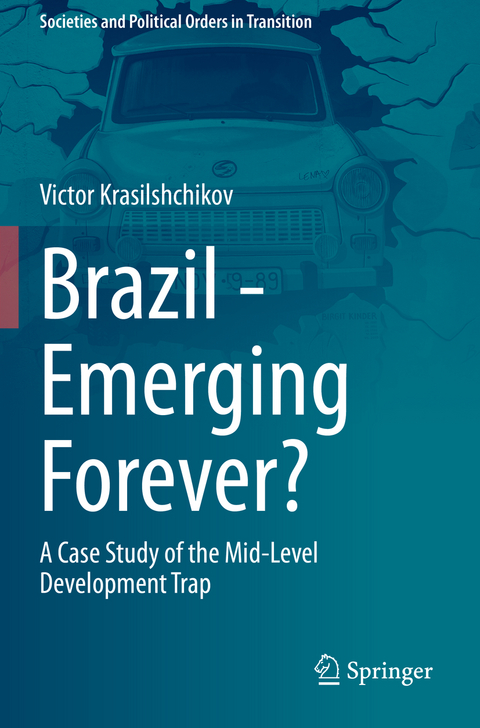
Brazil - Emerging Forever?
Springer International Publishing (Verlag)
978-3-030-50210-2 (ISBN)
This book discusses the social and economic problems currently faced by Brazil as one of the largest "emerging countries". It examines the prospects of Brazilian development from an interdisciplinary perspective, and studies both socio-economic and political variables.
The book embraces the large period of Brazil's development in the 20th and the first decades of the 21st Century. The peculiar attention is drawn to the short period of prosperity under the left-centrist governments as a continuation of the previous conservative modernisation model, which produced an increased dependency on China and a premature deindustrialisation of the economy. Assessing Brazilian statistics on households' incomes and consumption, the book subsequently discusses the lack of strong social actors as the main problem in today's Brazil. In closing, it examines probable scenarios for the country's development and compares the situation to other "emerging countries", including the Asian giants, China and India.
The book addresses the needs of researchers in the fields of political science, economics and sociology who are seeking a better understanding of emerging countries, and the Brazilian case in particular.
Dr. habil. Victor Krasilshchikov is a Russian economist and a specialist in development studies with a focus on the comparison of East Asia and Latin America. He is a member of the European Association of Development Research and Training Institutes (EADI) and the Spanish Network of Development Studies (REEDES). As of recently he is also chief researcher at the Institute of Scientific Information for Social Sciences (the Russian Academy of Sciences).
Introduction. Why Brazil?.- The "Multi-polar World", BRICS, and the Coming Chinese Hegemony: Prognoses and Daydreams.- Thunderclouds over the Emerging Countries and the Middle-Income Trap.- The Rise to Modernity via Conservative Modernisation.- The New Model of Development or Conservative Modernisation in the Left-Centrist Arrangements?.- The Costs of Success and Return to the Past.- How Did the Incomes of Brazilians Change under the Left Government?.- The Brazilian Society as the Obstacle to Self-Modification.- Concluding Remarks: Some Prospects for Brazil and Other Emerging Countries, or the Myth of Emergence?.
| Erscheinungsdatum | 08.11.2022 |
|---|---|
| Reihe/Serie | Societies and Political Orders in Transition |
| Zusatzinfo | XV, 198 p. 3 illus. in color. |
| Verlagsort | Cham |
| Sprache | englisch |
| Maße | 155 x 235 mm |
| Gewicht | 338 g |
| Themenwelt | Sozialwissenschaften ► Politik / Verwaltung ► Vergleichende Politikwissenschaften |
| Sozialwissenschaften ► Soziologie ► Spezielle Soziologien | |
| Wirtschaft ► Volkswirtschaftslehre | |
| Schlagworte | Brazil • China • Conservative modernisation • Deindustrialisation • Development • emerging countries • Inequality • middle class • middle-income trap • Poverty |
| ISBN-10 | 3-030-50210-4 / 3030502104 |
| ISBN-13 | 978-3-030-50210-2 / 9783030502102 |
| Zustand | Neuware |
| Haben Sie eine Frage zum Produkt? |
aus dem Bereich


